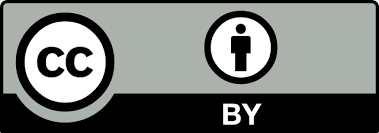Analysis of Teacher Ability in Learning Implementation Plan (RPP) in MIN 2, MTsN, and Man Kubu Raya 2013 Curriculum
Abstract
The purpose of this study was to evaluate the readiness of the 2013 Curriculum Learning Implementation Plan (RPP) at MIN 2, MTSN, and MAN Kubu Raya by Akidah Akhlak teachers using a qualitative descriptive research methodology. In conducting research, a qualitative descriptive approach is used to assess a particular problem that arises and explain it by utilizing information obtained from written or oral findings relating to the subject under study. The results showed that the faculty’s Akidah Akhlak teachers in compiling the 2013 Curriculum Implementation Plan (CIP) at MIN 2, MTSN, and MAN Kubu Raya were rated “very good” based on three stages of observation conducted by researchers. The accuracy of the Learning Implementation Plan (RPP) prepared by each teacher was shown by an average achievement score of 83. 33% The first observation resulted in a score of 86%, while the second and third assessments resulted in a score of 78% and 86%, respectively. However, the acquisition of abilities does not always develop without being influenced by various conditions. The above achievements are the result of two different components, including internal and external elements.
Downloads
References
Aida, L. N., Maryam, D., Agami, S. D., & Fuwaida, U. (2020). Innovation of Islamic Religious Education Learning Media Through Audiovisual Media. Skilled: Journal of Basic Education and Learning, 7(1).
Amaliya Nasucha, J., & Rina. (2021). Implementation of Islamic Religious Education (PAI) Learning in Forming Students’ Religious Character. TABYIN: JOURNAL OF ISLAMIC EDUCATION, 3(02). https://doi.org/10.52166/tabyin.v3i02.144
Aziz, A. Z. (2015). SCHOOL-BASED MANAGEMENT: ALTERNATIVES TO IMPROVE THE QUALITY OF MADRASAH EDUCATION. El-Tarbawi, 8(1). https://doi.org/10.20885/tarbawi.vol8.iss1.art5
Hakim, F. (2022). The Role of the Madrasa Head in Improving Teacher Competence in Compiling RPP Through Academic Supervision at MIN 1 Gunungkidul Ministry of Religion Kab. Gunungkidul Semester I Academic Year 2021/2022. Indonesian Journal of Action Research, 1(1). https://doi.org/10.14421/ijar.2022.11-12
Imelda, I. (2020). Increasing the Teacher’s Ability to Carry Out the Learning Process with Clinical Supervision. Journal of Elementary School Science, 4(2), 229–240. https://doi.org/10.23887/JISD.V4I2.25444
Jatirahayu, W. (2013). QUALITY TEACHER IS THE KEY TO QUALITY EDUCATION. Scientific Journal of Teachers Caraka Educational Thinking, 0(0). https://doi.org/10.21831/JIG
Kamilati, N. (2018). ANALYSIS OF ASSESSMENT COMPONENTS IN LEARNING IMPLEMENTATION PLANS AS A REFERENCE FOR TEACHER SUBSTANTIVE TEACHER TEACHER TECHNICAL EDUCATIONAL CURRICULUM DEVELOPMENT. EDUCATION: Journal of Religious and Religious Education Research, 16(1), 1–17. https://doi.org/10.32729/EDUKASI.V16I1.440
Kusmawati, H., & Surachman, A. I. (2019). GLOCALIZATION OF RELIGIOUS ISLAMIC EDUCATION CURRICULUM OF MADRASAH ALIYAH IN THE ERA OF THE INDUSTRIAL REVOLUTION 4.0. Scientific Journal of Basic Education, 6(2). https://doi.org/10.30659/pendas.6.2.98-115
Kusnadi, K. (2018). Basic Concepts and Strategies for Education Quality Assurance: As a Review of Education Quality Policy. Indonesian Journal of Education Management & Administration Review, 1(2), 107–118. https://doi.org/10.4321/IJEMAR.V1I2.942
Mahliatussikah, H., Silvia, E. E., Putri, A. Y., & Pratiwi, A. E. (2022). Application of the Student-Centered Learning (SCL) learning method in learning at SDN Kedunglukuk 2 Sidoarjo. Scientific Journal of Basic Education, 9(2), 99–114. https://doi.org/10.30659/PENDAS.9.2.99-114
Qalam, M.N. (2021). DIFFICULTIES OF RELIGIOUS TEACHERS IN PLANNING IMPLEMENTATION OF 2013 CURRICULUM LEARNING AT MADRASAH IBTIDAIYAH RAUDLATUSSA’ADAH PONTIANAK. Tarbawi Khatulistiwa: Journal of Islamic Education, 6(2). https://doi.org/10.29406/tbw.v6i2.2782
Qasim, M., Kasubag, M., Uin, P., & Makassar, A. (2016). TEACHING PLANNING IN LEARNING ACTIVITIES. Journal of Islamic Discourse, 4(3), 484–492. https://doi.org/10.24252/JDI.V4I3.7365
Ramadhan, S. (2017). Evaluation of Islamic Religious Education at the Ibnul Qayyim Putri Yogyakarta Madrasah. Journal of Islamic Religious Education Al-Thariqah, 2(1). https://doi.org/10.25299/althariqah.2017.vol2(1).646
Rumapea, M.E. (2014). 2013 CURRICULUM WITH CHARACTER. JUPIIS: SOCIAL SCIENCE EDUCATION JOURNAL, 5(2). https://doi.org/10.24114/jupiis.v5i2.1112
Sibarani, M. (2020). MAXIMUM EDUCATOR PERFORMANCE IMPROVES STUDENTS’ LEARNING ACHIEVEMENT. Phronesis: Journal of Theology and Mission, 2(1). https://doi.org/10.47457/phr.v2i1.32
SOBARI, S. (2022). IMPLEMENTATION OF SUPERVISION EFFORTS TO INCREASE TEACHER COMPETENCE IN PREPARING RPP AT MTS IBNU TAIMIYAH SINGKAWANG IN 2022. MANAGERIAL: Journal of Management Innovation and Educational Supervision, 2(2). https://doi.org/10.51878/manajerial.v2i2.1279
Supriatna, U. S. (2016). Development of a Comprehensive Learning Model in Social Science Education in Elementary Schools. JINoP (Journal of Learning Innovation), 2(1), 319. https://doi.org/10.22219/JINOP.V2I1.2627
Udi, T. M. (2021). MULTICULTURAL-BASED PIE CURRICULUM DEVELOPMENT. Journal of Islamic Education.
Vidiarti, E., Zulhaini, and Andrizal. (2019). ANALYSIS OF THE ABILITY OF ISLAMIC RELIGIOUS EDUCATION TEACHERS IN THE 2013 CURRICULUM LEARNING IMPLEMENTATION PLAN (RPP). Journal of Islamic Religious Education, 5 (2), 102-112.
Winarsih, S. (2017). Policy and Implementation of Higher Education Management in Improving Education Quality. Scholar: Journal of Education and Society, 15(1), 51–66. https://doi.org/10.21154/CENDEKIA.V15I2.1005
Yusuf, W. F. (2018). Implementation of the 2013 Curriculum (K-13) in Elementary School (SD) Islamic Religious Education Subjects. Al-Murabbi: Journal of Islamic Religious Education, 3(2), 263–278.
Copyright (c) 2023 Arfannur

This work is licensed under a Creative Commons Attribution 4.0 International License.




